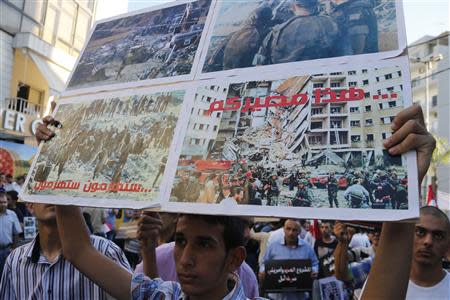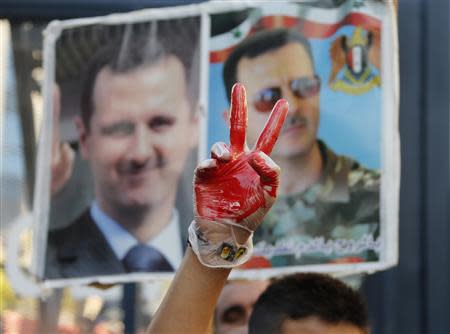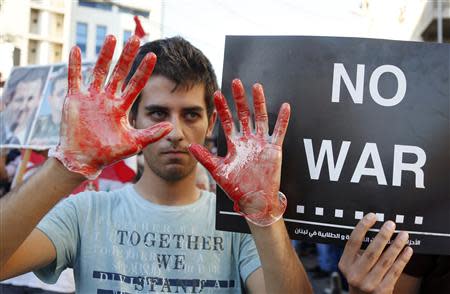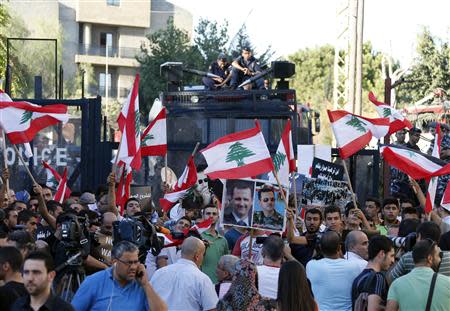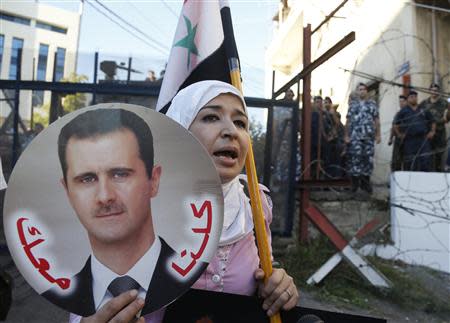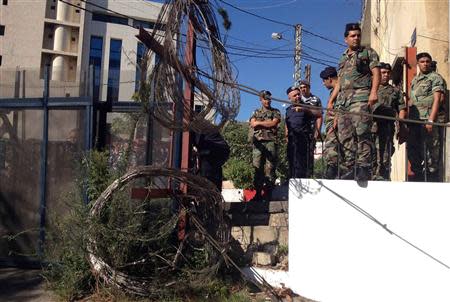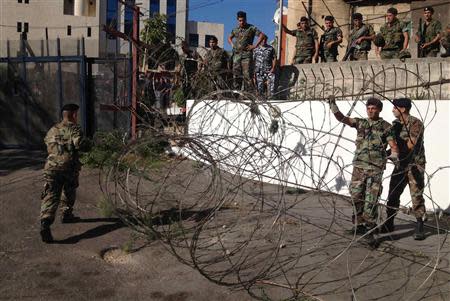U.S. tightens embassy security in Lebanon and Turkey, warns Americans
By Paul Eckert WASHINGTON (Reuters) - The United States tightened security at diplomatic missions in Lebanon and Turkey on Friday because of potential threats, ordering some personnel out of Lebanon and offering to evacuate those in Adana in southeastern Turkey. The State Department warned U.S. citizens against traveling in Lebanon and southeastern Turkey and urged Americans in the rest of Turkey "to be alert to the potential for violence." Officials did not offer specifics about the possible threats, which were revealed less than a week before the 12th anniversary of the September 11 attacks amid an intensifying debate over President Barack Obama's plans to strike Syria. "These are potential threats," State Department spokeswoman Marie Harf told reporters after the warnings were issued. "Obviously, the tension ... in the region, including in Syria, plays a role in this." Harf said she was not aware of any specific threats. "Non-emergency personnel and family members" were ordered to leave Beirut and given permission to leave Adana, near Turkey's border with Syria, but the U.S. missions were not closed and still offered consular services, she said. "Given the current tensions the region, as well as potential threats to U.S. government facilities and personnel, we are taking these steps out of an abundance of caution to protect our employees and their families, and local employees and visitors to our facilities," Harf said in an earlier statement. Washington says troops loyal to Syrian President Bashar al-Assad carried out a poison gas attack that killed more than 1,400 people in rebel-held suburbs of Damascus on August 21. Obama has asked the U.S. Congress to back his plan for limited strikes in response to the chemical weapons attack. In Lebanon, officials ordered non-emergency personnel and their family members out of the country "due to threats," the U.S. Embassy in Beirut said in statement. NEW U.S. AMBASSADOR IN LEBANON Meanwhile, the new U.S. ambassador to Lebanon, David Hale, presented his credentials to President Michel Suleiman, the embassy's website said. Washington was "focused on insulating Lebanon from any aftermath of any response to Syria's chemical attack, and preserving Lebanon's policy of disassociation from the Syria conflict," website said, quoting Hale's remarks to Suleiman. It said Hale criticized Syrian ally Hezbollah as the one party in Lebanon that "blatantly violates" this disassociation policy through direct participation in the Syrian conflict. In Turkey, U.S. officials offered voluntary evacuation to reduce its diplomatic presence at the consulate in Adana, Turkey, "because of threats against U.S. government facilities and personnel." Americans who remain in Lebanon or southeastern Turkey should make their own emergency plans, officials said. The State Department also renewed its warning to U.S. citizens to "defer all non-essential travel" to Pakistan, where on August 9 it had ordered the departure of non-emergency U.S. staff from the consulate in Lahore. Public and consular services in the city remain unavailable, the department said. The Wall Street Journal reported on Thursday that the United States had intercepted an order from an Iranian official instructing militants in Iraq to attack U.S. interests in Baghdad if the United States launches a military strike in Syria, a close ally of Iran. The U.S. Embassy in Baghdad was a likely target, according to unidentified American officials quoted by the newspaper. "We have not taken any action in terms of our posts in Iraq," said Harf. "Clearly we remain concerned and (are) looking at the security throughout the region." Nearly 20 U.S. embassies and consulates in the Middle East and Africa were closed early last month when the United States said it had picked up unspecified terrorism threats. The U.S. Embassy in Sanaa, Yemen, shut down for more than two weeks. In April 1983, Iranian-backed Islamists blew up the U.S. Embassy in Beirut, killing 63 people. In October of that year, Shi'ite Muslim suicide bombers linked to Tehran blew up the U.S. Marine and French barracks in Beirut, killing 241 Marines and 58 French paratroopers. On September 11, 2012, an attack on U.S. diplomatic posts in the Libyan city of Benghazi killed four Americans, including the U.S. ambassador to Libya, Christopher Stevens. (Additional reporting by Arshad Mohammed; Editing by Doina Chiacu and Christopher Wilson)
